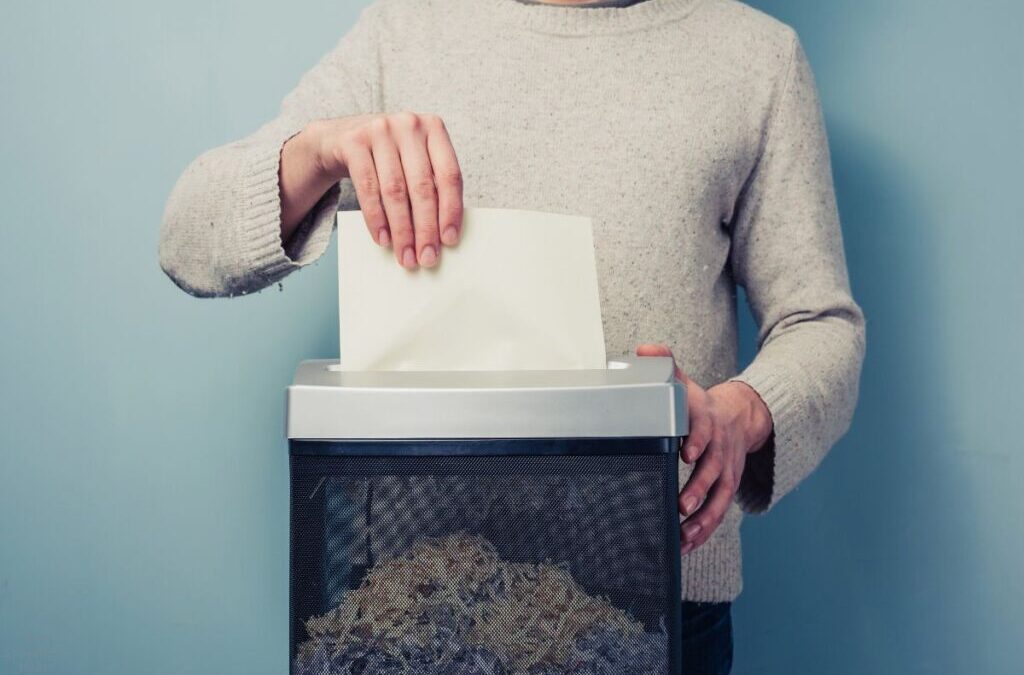Inside: Have you tried to sort the papers in your home but aren’t sure what types of paperwork you need to keep and what you can declutter? This post is for you!
In today’s increasingly digital world, most of the documents and records we need to keep can be found online. You can opt into electronic statements for most of your bills and bank accounts, file your taxes online, and access your medical records through the hospital’s patient portal.
While it’s nice to have those electronic records at your fingertips, accessible with the click of a button, there are still some types of paperwork that it’s a good idea to hold onto hard copies of.
The challenge lies in figuring out what to do with the various types of documentation you want to keep for your personal records.
While physical documentation can get out of hand and contribute to paper clutter, there are certain types of paperwork you’ll want to keep. Having guidelines on what should stay and what can go will help you streamline your papers.
Not sure what you can keep and what you can declutter? Here’s a quick overview of some of the most common types of paperwork you’ll want to hold onto – and a few things you can get rid of.
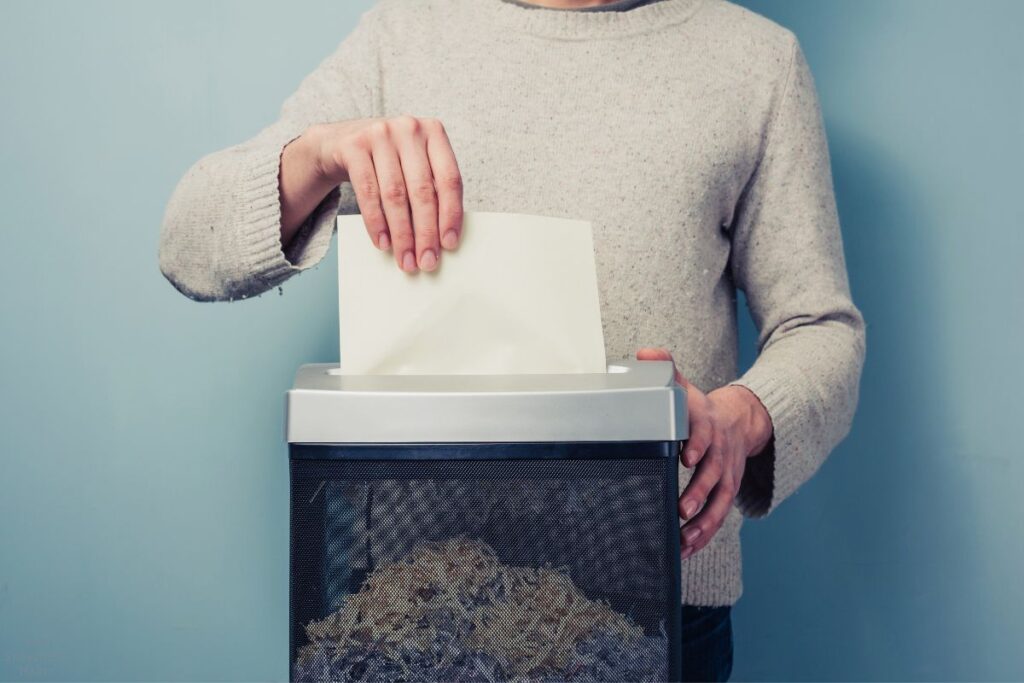
7 Types of Paperwork You Need to Keep
If you’re overwhelmed with papers and want to declutter them, it’s important to first know what you need to keep.
There are some pieces of documentation that you just can’t get rid of – at least, not right away. Documents that prove ownership, for example, are critical to keep around. The same applies to anything that might be needed if you’re ever audited by the IRS.
Here’s a breakdown of what you’ll definitely want to keep around:
1. Tax records.
You might be thinking – do I really have to hold onto all of those tax documents?
Well, yes. Unfortunately, you do.
You should keep any W-2’s, 1099 forms, receipts for expenses you’ve deducted, and other documentation related to tax filings for at least seven years.
If you’re ever audited by the IRS, you’ll need to quickly produce these documents as part of that process, and having them organized and readily available will make your life a lot easier.
If you live outside of the US, check the recommended length of time to hold onto tax-related documents.
Make sure to organize your paper files so that you can easily access documents as needed.
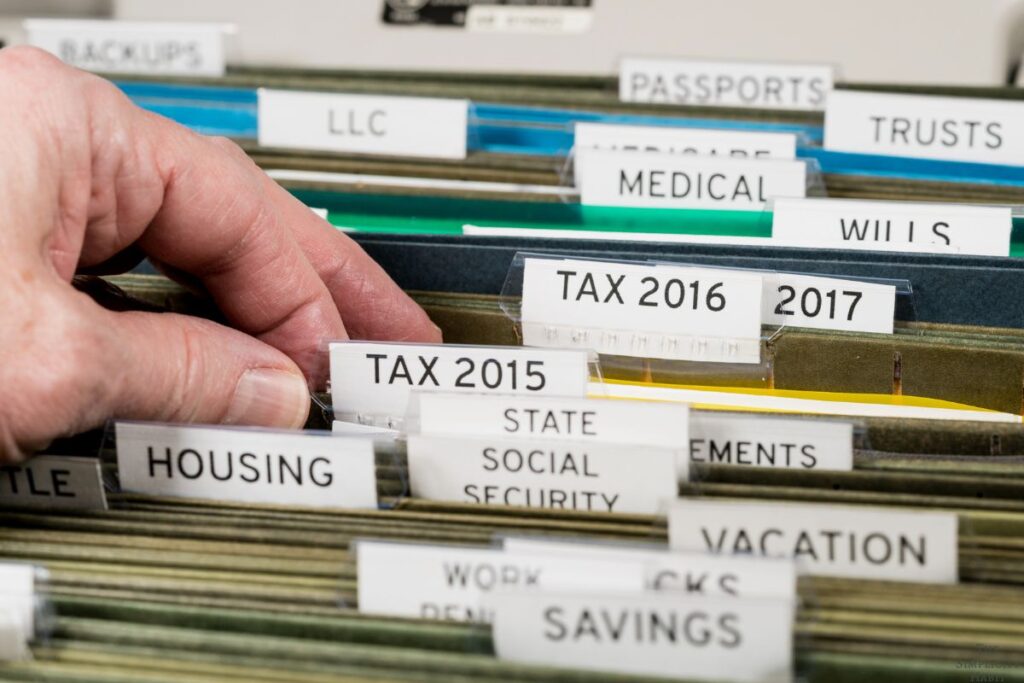
2. Paperwork related to your vehicle.
If you own a car, you know there’s a little bit of paperwork that comes along with it – specifically, your title and your insurance documents.
Your car title is one document you’ll want to retain in physical form for as long as you own the car. You’ll need it to prove ownership if you’re ever pulled over by the police, and when you’re finally ready to sell your car, you’ll need it to transfer ownership.
While you can – and should – scan a digital copy as a backup, this is one piece of paperwork that you’ll want to keep.
It’s also a good idea to keep your physical insurance cards with your vehicle at all times. While most insurance providers allow you to access these online or through a mobile app, you’d be out of luck if you didn’t have any signal.
Most insurance providers will send a new set of insurance cards every six months; you don’t need to hold onto the expired cards, so you can shred these once the new ones arrive.
3. Home loan paperwork.
Similar to owning a car, having your own home comes with a pretty substantial amount of paperwork.
Your home loan paperwork and any other documents you obtained when you took possession of your property should be kept as long as you own that home.
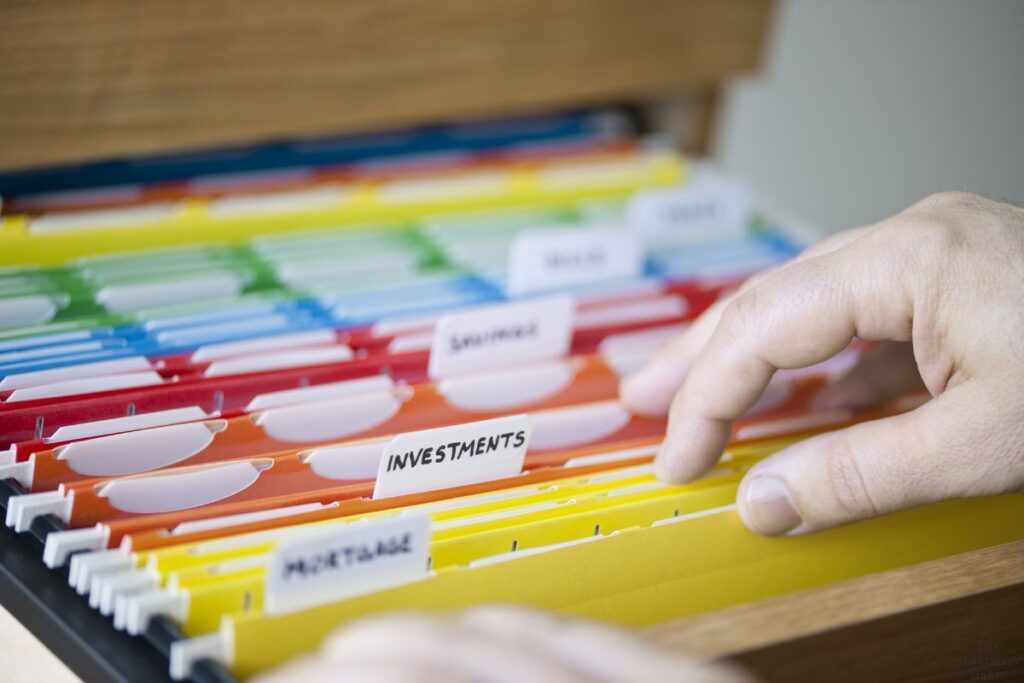
4. Paperwork related to your investments.
If you maintain a brokerage account or participate in stock trading, you’ll definitely want a record of what those transactions entailed.
You’ll need these to reconcile your tax obligations at the end of each year.
You should hold onto any records that document the purchase or sale of stocks for as long as you own those investments.
As far as brokerage account statements are concerned, keep these for seven years – just like you would hold onto other documentation that could be required in the event of an IRS audit.
5. Medical records.
Another type of paperwork you’ll want to keep around involves your medical records. Records of vaccinations, surgeries, diagnoses, and treatment plans capture important information about your prior experience and may be critically useful in the future if another medical situation arises.
While many of these documents are accessible through doctor’s portals and hospital websites, it’s a good idea to print these off or save a digital copy for your personal records instead of solely relying on their system to store them.
If you change doctors, or they change systems of record, you might lose access to key pieces of your medical history.

6. Recent bank and credit card statements.
Most banks and credit card providers can provide digital statements – which is a great way to cut down on clutter.
Still, it’s a good idea to keep physical copies – or at least retain your own copies of these documents in your personal digital files – for at least one year.
It’s important to review these statements regularly to confirm there isn’t any unwanted activity, reconcile your expenses, and ensure everything is aligned when it’s time to pay taxes.
7. Official identifying documents
This one may go without saying, but you should keep a copy of birth certificates for everyone in your home, your marriage license, social security card, and any other official identifying documents.
We found we needed them for a variety of reasons including, most recently, getting passports for our kids. It’s much easier to keep an official copy on hand as it takes a while to order a replacement if needed.
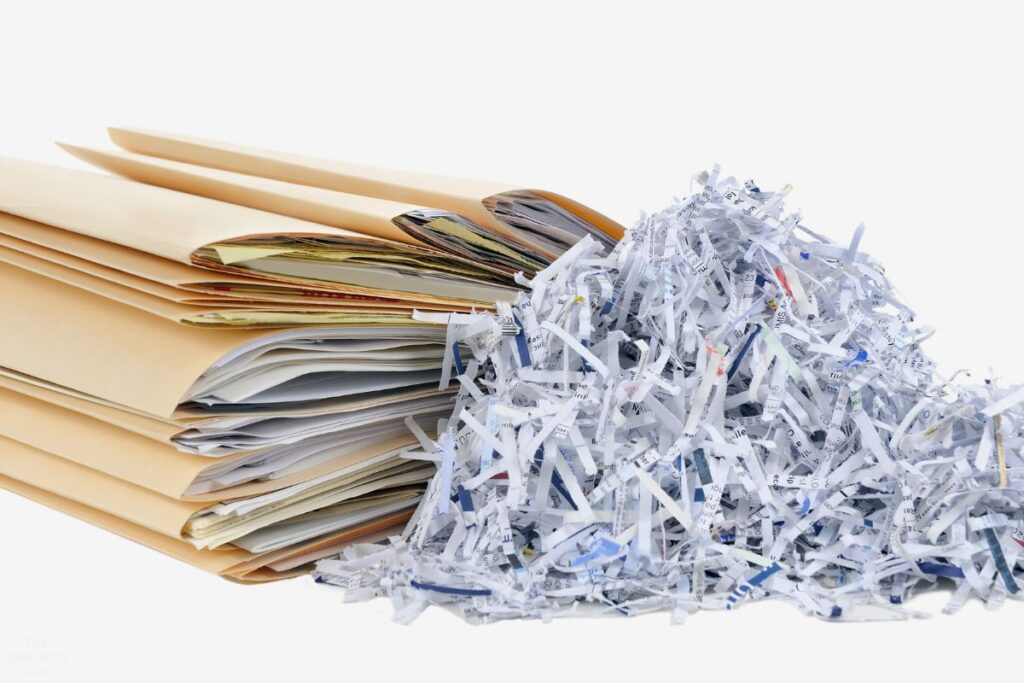
3 Types of Paperwork You Can Declutter
If it feels like you have to keep everything, I’ve got some good news – you don’t!
There are some pieces of paperwork that can definitely go straight into the shred bin (I’m looking at you junk mail), and a few that you’ll only want to hold onto for a little while.
Here are a few things that you can get rid of guilt-free:
1. Outdated cards and documents.
Insurance cards typically have an expiration date and are replaced on a fairly frequent basis by your insurance provider.
You don’t need to hold onto insurance cards or credit cards that have expired or are no longer current. These can be shredded and discarded.
The same typically goes for outdated documents for things you no longer own.
2. Utility & phone bills.
Most utility providers send a monthly bill to summarize your usage and let you know how much you owe.
Once you verify the information on these bills for accuracy and pay your balance, feel free to discard these.
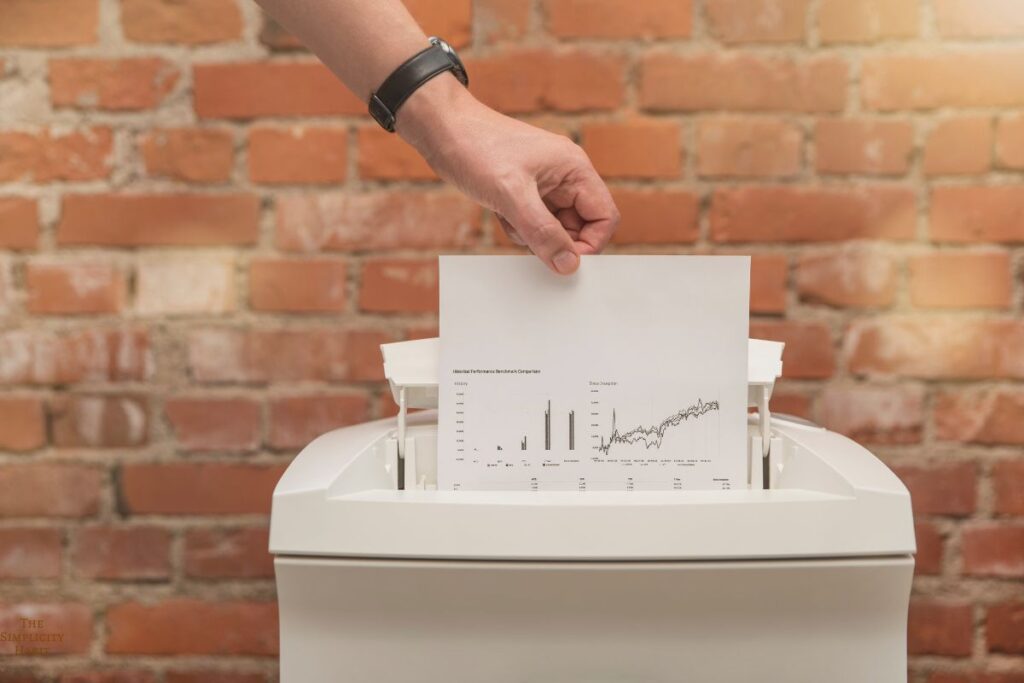
3. Old bank and credit card statements.
While it’s a good idea to hold onto bank and credit card statements for a year, you likely won’t need to keep them beyond that. This is especially true if they don’t document a major transaction, like a big purchase.
If you’ve banked with the same financial institution for a while, chances are you can access all of your historical statements online if a need ever arose. However, it is important to know that if you close an account you won’t continue to have access to that information.
It is a good idea to confirm this before you shred those old statements – while the odds are extremely low, if you’re audited by the IRS, you may need to provide a few years of bank statements as part of that process.
What do I do after decluttering papers?
After you’ve finished simplifying your paperwork, organize it. Label your files clearly and stay current with decluttering and filing papers.
This will make your documents easily accessible and decrease frustration when you need to locate important papers.
Review your paperwork from time to time to make sure you’re only keeping papers you need and that your organizational system is working for you.
Would you add anything else to the types of paperwork you need to keep or the ones you can declutter? Leave a comment and let me know!
Sign up on the form below to get weekly decluttering tips and inspiration sent straight to your inbox. You’ll also get the free 5 Areas to Declutter in 10 Minutes Checklist to help you get started decluttering today.
window.fd(‘form’, {
formId: ’60fafee5c580329d41b9a50d’,
containerEl: ‘#fd-form-60fafee5c580329d41b9a50d’
});
The post 7 Types of Paperwork You Need to Keep (and 3 You Can Declutter) appeared first on The Simplicity Habit.

